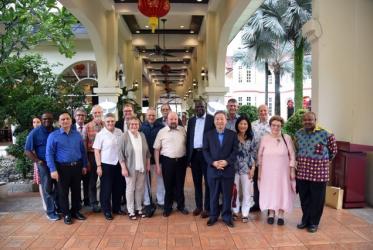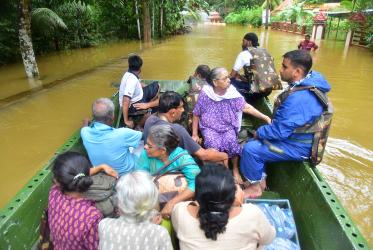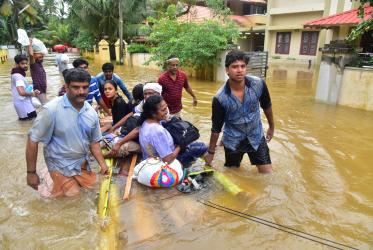Displaying 41 - 60 of 80
Church in Bali empowers youth to break cycle of poverty
18 March 2019
Interfaith Rainforest Initiative expands
12 February 2019
WCC Eco-School encourages youth to become eco-ambassadors
08 November 2018
WCC calls for prayer for flood-stricken Kerala, India
18 August 2018
Echoes from Yangon
26 October 2017
G20 summit: call to pray for peace in Hamburg
07 July 2017
G7 must address famine
22 May 2017









